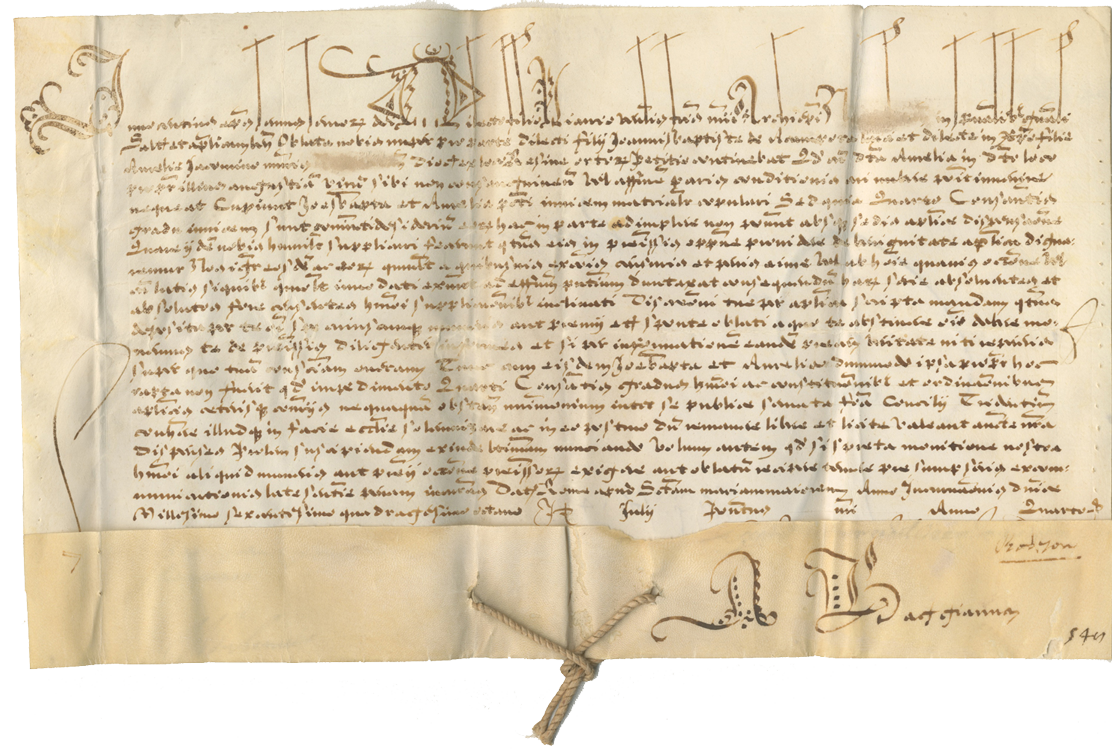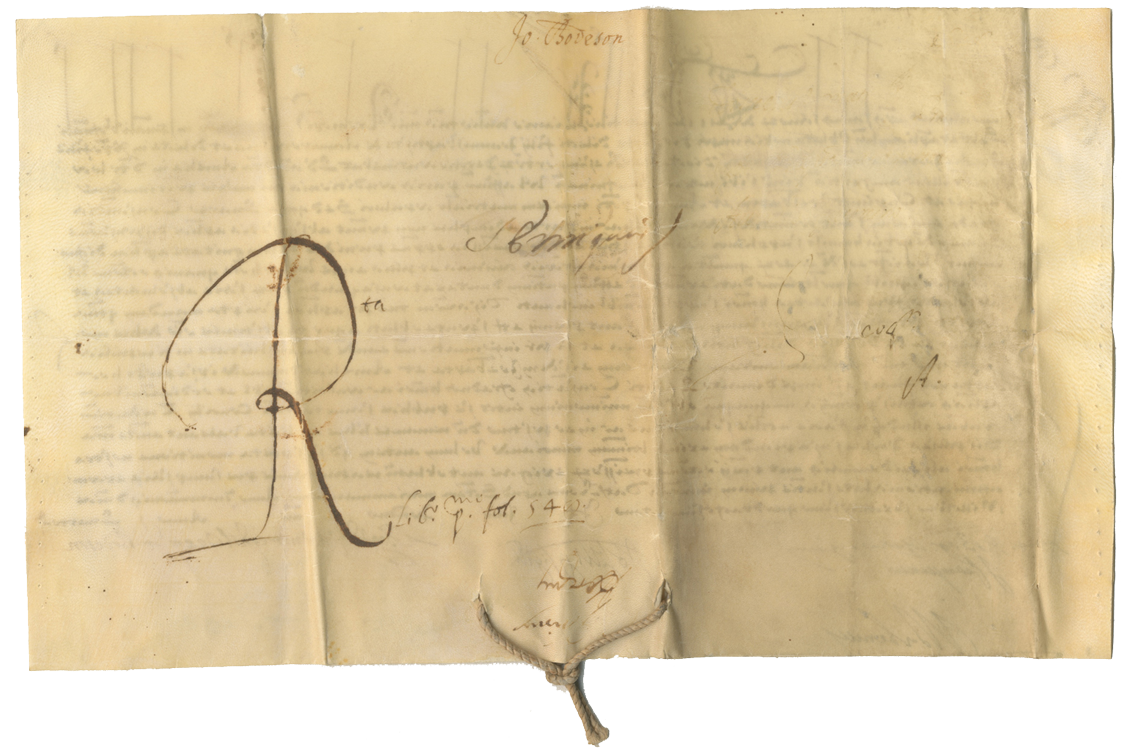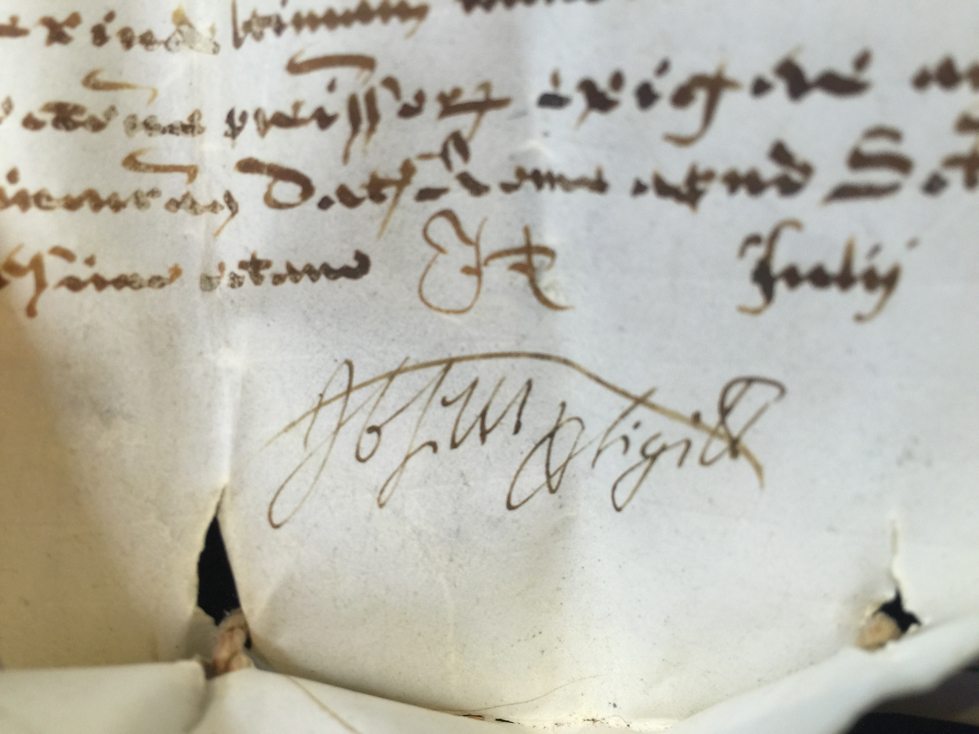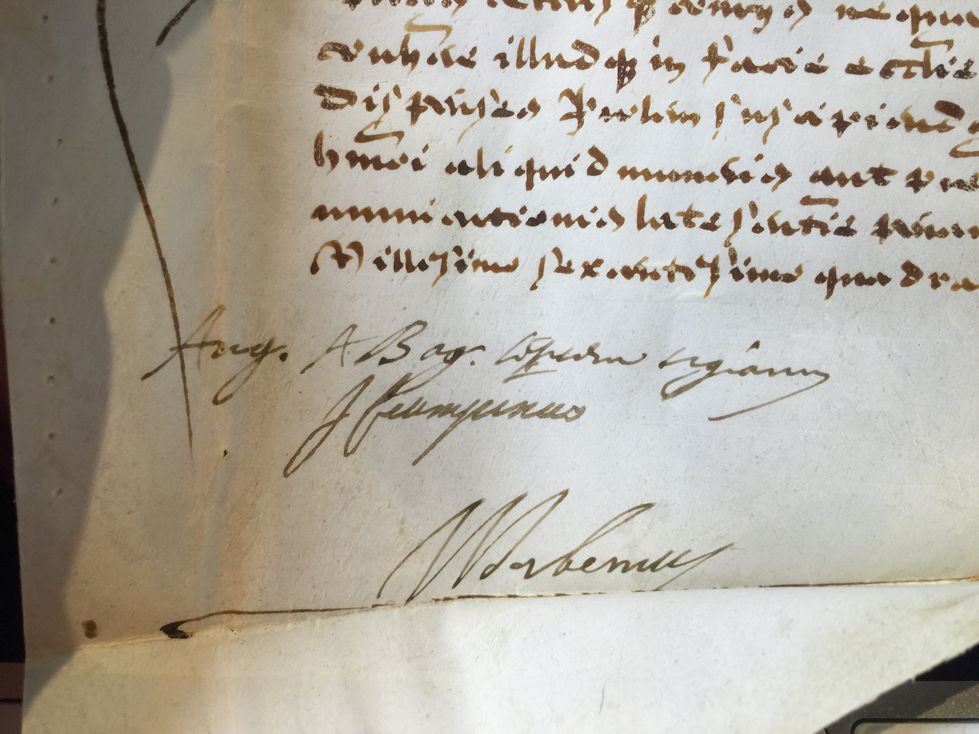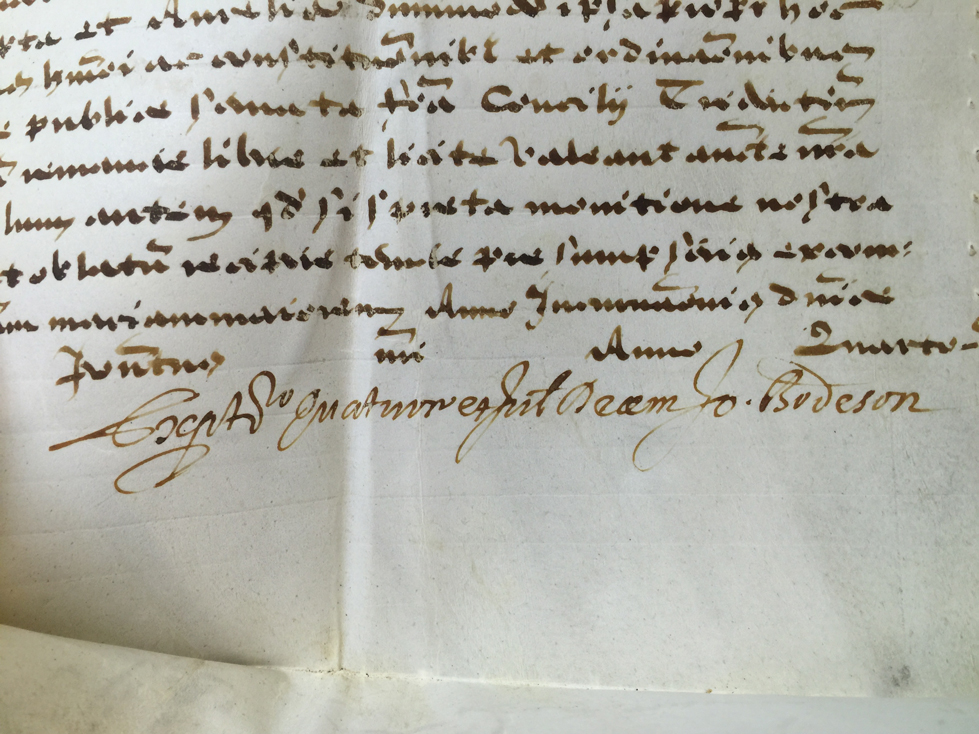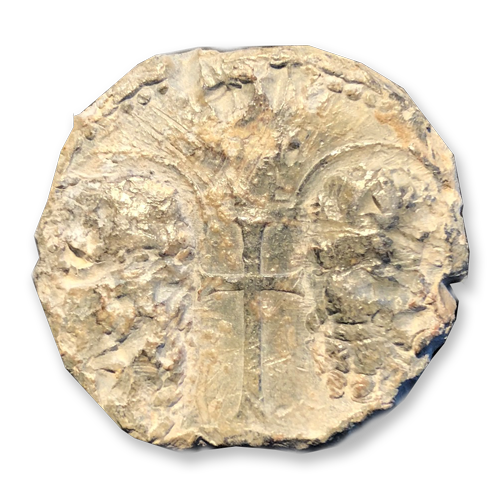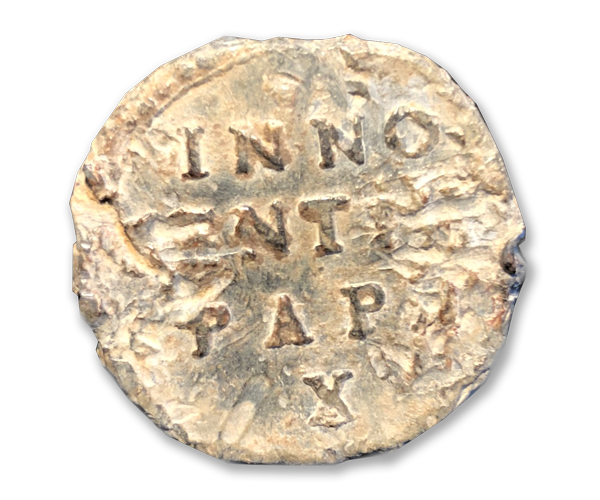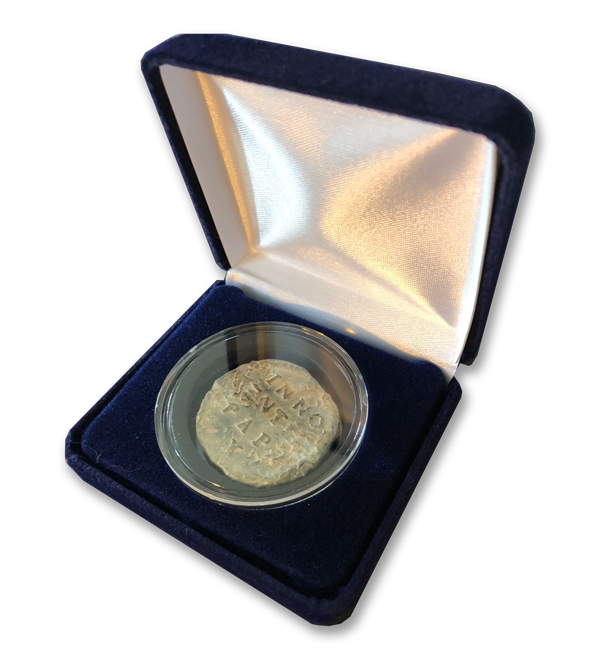Pope Innocent X
Pope Innocent X
Pope Innocent X Papal Bull - 1648
Beautiful papal bull on parchment from the court of Pope Innocent X dated 1648, untranslated. Measuring 12″ x 8.5″ (31cm x 22cm) this is one of the finest intact manuscripts we have seen, signed by chancery officials. Several signatures appear beneath the plica (fold) at the bottom edge, which is bound by a hemp cord in the traditional fashion. Original bulla seal from Innocent X included, in presentation case.
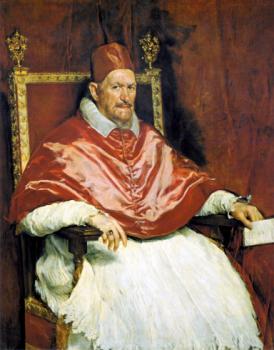
Pope Innocent X (1574-1655), born Giovanni Battista Pamphili (aka Pamphilj), was pope from 15 September 1644 to his death in 1655.
Elected in 1644 following a long and contentious conclave (37 days), Cardinal Giambattista Pamphili chose to be called Innocent X and among his first actions was stripping Pope Urban VIII’s Barberini relatives of their lands and possessions. Their reaction to this was to flee to France to seek Cardinal Mazarin’s protection. Mazarin forced the new pontiff to pardon them or face a military threat in the Papal States. Innocent acquiesced and pardoned them. But Innocent himself was not immune to nepotism and soon bestowed wealth and titles and offices on members of his own family.
His papacy was characterized primarily by political matters, but ecclesiastical issues were also important. He was known for giving strong support to foreign missions, for founding a college at Ravenna, and for raising the status of a college to a university in the Philippines. But the greatest issue he faced in matters of faith concerned the condemnation of Jansenism, which was the extremist views of St. Augustine’s teaching on grace and free will. Innocent even took part in several sessions of a commission he established to examine their work. In the end it was unconditionally condemned and before his death, the French government agreed with him, serving to contain the spread of this heretical movement.
Innocent died a rather slow and agonizing death that allowed his relatives to loot and transport the papacy’s wealth elsewhere. None of his relatives felt in any way obligated to bury him. He was buried at someone else’s expense in the simplest style imaginable.

